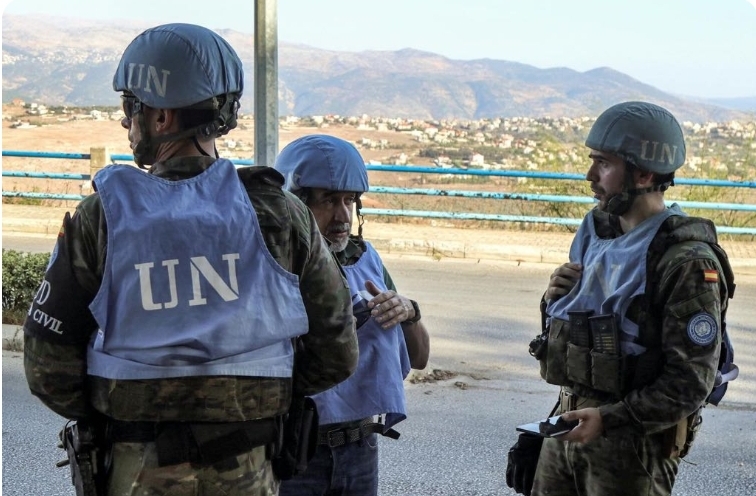

UNIFIL is powerless. Israel views it as an extension of Lebanon.

The author of this article is BNR Web's editorial board.
The Israeli Defence Forces (IDF) have recently opened fire,
on UNIFIL posts and soldiers. In the process, at least four soldiers from the peacekeeping mission were wounded, while many others had to take shelter from the Israeli attacks. The international reaction has been filled with horror, but Israel itself is oblivious to this as it demands that UNIFIL leave the area. Israel uses the argument that UNIFIL is being used as a kind of human shield for Hezbollah.
Listen to the radio interview now: 
The report can be summarised as follows:
Bert Kleine Schaars, former soldier, was active in Lebanon when the peacekeeping mission UNIFIL was first established. He reflects on the situation with mixed feelings, comparing it to the current period. 'In 1980, we had complete control of the area. Now, UNIFIL is merely an observation force, while Israel demands that UNIFIL leaves, which is unacceptable.'
Israel views the peacekeeping mission as an extension of the Lebanese.
Bernard Hammelburg, foreign affairs commentator.
In the 1980s, Kleine Schaars was in the area as part of the 'buffer force', as he states. The UN Security Council adopted a ceasefire between Hezbollah and Israel in Resolution 1701, which gave the peacekeeping force a more important role in overseeing the truce. At the time, Hezbollah was not the only presence in the area. The Palestinian freedom organisation PLO of Yasser Arafat also played a role. 'Arafat was in southern Lebanon with his fighters, but only seven to eight kilometres from the border with Israel. Our job was to keep the warring factions apart.'
The former soldier looks back on it as a 'fascinating, but also exciting time'. As a sergeant- fourier, Kleine Schaars was responsible for organising and running patrols to ensure the safety of the area. 'It absolutely enriched my life.' He is acutely aware of the parallels between the current situation with UNIFIL and his own time in the role. He is forthright in his description of how detained militants were released with weapons and all if they were taken to their own areas. 'As a result, the following week you might have to intercept them again.' He is unequivocal in his assessment of UNIFIL's current position, which he believes to be even more 'powerless' than before.
The role of the peacekeeping force has changed. This is partly because of the 2006 war between Hezbollah and Israel. However, this is not the first time that UNIFIL has faced criticism from Israel. Israel has been opposed to UNIFIL's presence in the area for some time, according to the foreign commentator. Israel views the peacekeeping mission as an extension of the Lebanese. This is, to some extent, accurate, as they have begun undertaking a range of other activities in the area they are responsible for, such as constructing football pitches and purchasing computers for schools. However, Hezbollah is primarily responsible for this deviation from the mandate.
Hezbollah is holding Lebanese people hostage.
'The tragedy is Hezbollah,' the foreign commentator states emphatically. He cites the words of Lebanon's former prime minister, Fouad Siniora, who argues that the Lebanese people are 'being held hostage by Hezbollah' and thus the people are the biggest victims of the war between Israel and the terror group. Hammelburg therefore sees the current situation between UNIFIL and Israel as an 'outgrowth of that situation' and asserts that Hezbollah is to blame.




